A lot has changed since I last wrote about Vested. For one, the number of Indians investing in foreign stocks has improved.
And while there is no fixed statistics on whether the percentage of Indians who invest in equity went up from 2% to a higher percentage, both CDSL and NSDL saw an upsurge in the number of new accounts opened during 2020 and 2021, with a total of 14.2 million new accounts opened (from Economic Times).
It’s 2022, and the upsurge doesn’t seem to be dying down anytime soon.
U.S. Stocks & EFT Trading Platforms
The rise of investment apps has been a primary reason for this upsurge.
And not just in national equity. People have shown interest in foreign equity as well. In fact, foreign stocks have had a more profitable percentage than domestic stocks in 2020 and 2021.
This has drawn the youth of India to explore the U.S. stocks market and check the viability of successful investment there.
Two of the most popular apps used for investment in foreign equity are Vested and INDmoney.
You can check out the detailed review of Vested here.
An in-depth review of INDmoney is available here.
It may be worthwhile to read the reviews of each platform if you are unaware of their specific features.
New to investment? Read the 7 most crucial lessons to take when investing for the first time.
Vested vs INDmoney
Vested and INDmoney are actually two very different apps with some similarities.
The biggest and perhaps the only point of comparison between these two platforms is that both Vested and INDmoney offer frictionless foreign stock investment.
We will, therefore, focus this comparison post on this single factor, and try to conclude about which app is better suited for your foreign investment purposes.
Important to note here is that your portfolio and investment requirements might vary, and so might your requirements of what you’re looking for from your investment app.
Based on your needs, you might find either of the apps – Vested and INDmoney more useful than the other.
Let us now look at the features of each platform first to arrive at an analytical conclusion on which app is better suited for U.S. stock investment.
Features of Vested

No Commission
Vested does not take a commission for investment in U.S. stocks. This is a great feature for traders with sporadic activity as well as regular traders. If you plan to invest for the long term, this no commission feature proves pretty profitable.
Investment options
Vested has more than 1500 U.S. stocks and ETFs available for investment. You can also get Vested-special curated investment profiles known as ‘Vests’ for $3 per portfolio. As many as 9 Vests come free with the Premium plan.
Fractional Shares
You can buy parts or fractions of a share instead of buying a whole share. This feature is a great one for beginners and small investors who want to start with small investments. A lot of U.S. stocks are costly.

For example, the cost of 1 share of Meta (previously Facebook) is $344+ (as of December 31st). That is nearly Rs. 25,000 in Indian money.
Given that only 6.25 percent of the Indian population pays tax, investing Rs.25,000 in one share might be unachievable for most investors in India. This is where buying fractional shares is a great way to invest in profitable and well-paying U.S. stocks.
Insured US trading account
Vested has partnered with DriveWealth, a reputed U.S. brokerage firm that manages accounts created through Vested. All accounts created with Vested are insured for a sum of up to $500,000.
Vests : pre-built portfolios
Vests are specially curated pre-built portfolios provided by Vested.
Vests are categorized into theme-based and goal-based. Theme-based is when investment options are chosen based on specifications on industries. Goal-based Vests can be based on goals of portfolio diversification, goals of down-regulating risk while investing, and so on.
Fees & charges
The fee structure for Vested is simple and straightforward.
- Account opening charges – Nil. Vested does not charge any money for opening an account with them.
- No minimum balance – There is no minimum balance required for maintaining your Vested account.
- Zero inactivity fee – Unlike some apps that require you to be active within a specific period (usually at least one activity per 12 months). Vested does not penalize you for inactivity.
- Deposit fee – There is no deposit fee taken by Vested. Standard bank charges, however, apply.
- Withdrawal fee – There is a fixed $5 per withdrawal fee is Vested.
Plans and Pricing
Vested has a forever-free plan. There is also a Premium plan that costs Rs. 2500 per year. Under the Premium plan, you get one free withdrawal (per withdrawal costs $5)
Features of INDmoney

Zero Commission on Buy and Sell
INDmoney does not charge any commission on buying and selling U.S. stocks and ETFs.
Fractional shares

INDmoney also offers to buy fractional shares.
Free and insured U.S. Account for trading
INDmoney has partnered with the same U.S. firm – DriveWealth, through which it operates all accounts.
Every account is insured up to $500,000. DriveWealth is regulated by SIPC and FINRA, two reputed financial organizations in the U.S. that are regulated by the SEC.
On top of it, INDmoney offers a free 2 in 1 U.S. trading plus an Indian Savings account with the State Bank of Mauritius (SBM). SBM is known for its faster forex transactions.
Advisory and portfolio management
INDmoney offers personalized portfolio management and advice on investments based on your risk intake capacity and industry preferences. Charges for advisory features start from Rs. 399 per month.
Fees
- Account opening – No charges
- Buying U.S. Stocks and ETFs – No Charges
- Funds transfer with Super Saver SMB account – No charges
- Withdrawal below $2,000 – $5 Withdrawal above $2,000 – No charges
Plans and Pricing
There are 4 Premium plans that are for different brackets of investment amounts.
- IND Gold: Rs. 399 monthly for investment up to Rs. 50 lakhs.
- IND Gold+ : Rs. 999 monthly for investment up to Rs. 1.5 crores.
- IND Platinum: Rs. 2999 monthly for investment up to Rs. 3 crores.
- IND Platinum+ : Rs. 5999 monthly for investment up to Rs. 5 crores.
There is also a custom plan for investment above Rs. 5 crores.
Detailed Comparison between Vested and INDmoney
Regulations and Security
Vested and INDmoney have partnered with DriveWealth, a regulated U.S. financial body. Both platforms are therefore safe for investment purposes.
Both Vested and INDmoney follow guidelines of the Liberalized Remittance Scheme (LRS) by RBI. As per LRS rules, an Indian investor can send up to $250,000 without RBI’s approval.
Security
Since INDMoney is a money management, tracking, and investment app, it needs a lot of permissions – some as high risk as access to your personal Gmail account.
Vested, however, has no such requirement as it is focused only on U.S. stock trading.
Providing permission to read emails might be a bit of something and needs careful consideration.
Ease of Use
It is easy to open an account on both platforms. The process is the same for both, as both Vested and INDmoney have the same U.S. bank partners.
User Interface and Dashboard features
The UI and dashboard of both platforms are easy to use. However, I prefer
Vested regarding dashboard experience.
Variety and options
Vested has more than 1500 U.S. stocks and ETFs to choose from. INDmoney has lesser options, but still, there are thousands of companies to choose from.
Fees and Commission
Zero commission on buy and sell applies on both platforms. Vested has a per-withdrawal fee of $5, whereas INDmoney has a per-withdrawal fee of $5 for withdrawals below $2,000. For withdrawals above $2,000, INDmoney has no withdrawal fees.
Premium plans and advisory features
The Vests feature from Vested is good and affordable. Each curated investment portfolio known as a Vest costs $3. With the Premium plan that costs Rs. 2500 per year, you get access to 9 Vests.
INDmoney’s premium plans are costlier than Vested (the lowest plan is Rs.3600 per year) and provide advisory features from independent financial advisors. The advisory feature does not have great reviews.
Independent advisors are not always competent enough. And not being INDmoney employees, independent advisors are not as accountable as one would like to be.
Freebies
INDmoney provides free stocks on account opening and successful KYC registration. Vested provides no such freebies.
The freebies can sound tempting, and it is a good promotional feature from INDmoney.
However, when it comes to investment apps, it is good to see past promotional matters and check if the platform suits your specific needs. Another important point to consider is the fees and commission structure.
Documentation and support
Vested has a lot of documentation and a robust FAQ section to answer your most common investment questions. The support team at Vested is also good.
INDmoney’s documentation feature could be better. Also, support could be a lot better too.
Recurring Investments
Vested allows you to invest in U.S. stocks, ETFs and their own Vests recurringly. This means you can set an amount to invest through Vested automatically every week or month. The same way you do an SIP in mutual funds or recurring deposits.
This also allows you to do dollar cost averaging with Vested.
Something INDmoney doesn’t offer yet.
Verdict: Vested vs INDmoney
Vested and INDmoney both are reliable apps for U.S. stock trading.
Vested is, however, more reliable regarding security and ease of use (better interface and dashboard features). Vested is also single-focused on U.S. stock trading.
INDmoney is an overall app that helps manage and track your financial investments in India and U.S. It also tracks your expenses and facilitates crypto trading as well.
In terms of U.S. stocks and EFT trading – Vested is better on grounds of being more secure and more focused on U.S. trading.
If I have to consider INDmoney, it is the second-best app for U.S. investments.
This review is based on my personal usage of the apps, and I would strongly recommend you to read the individual reviews of Vested here and INDmoney here, along with this comparison post to decide for yourself.

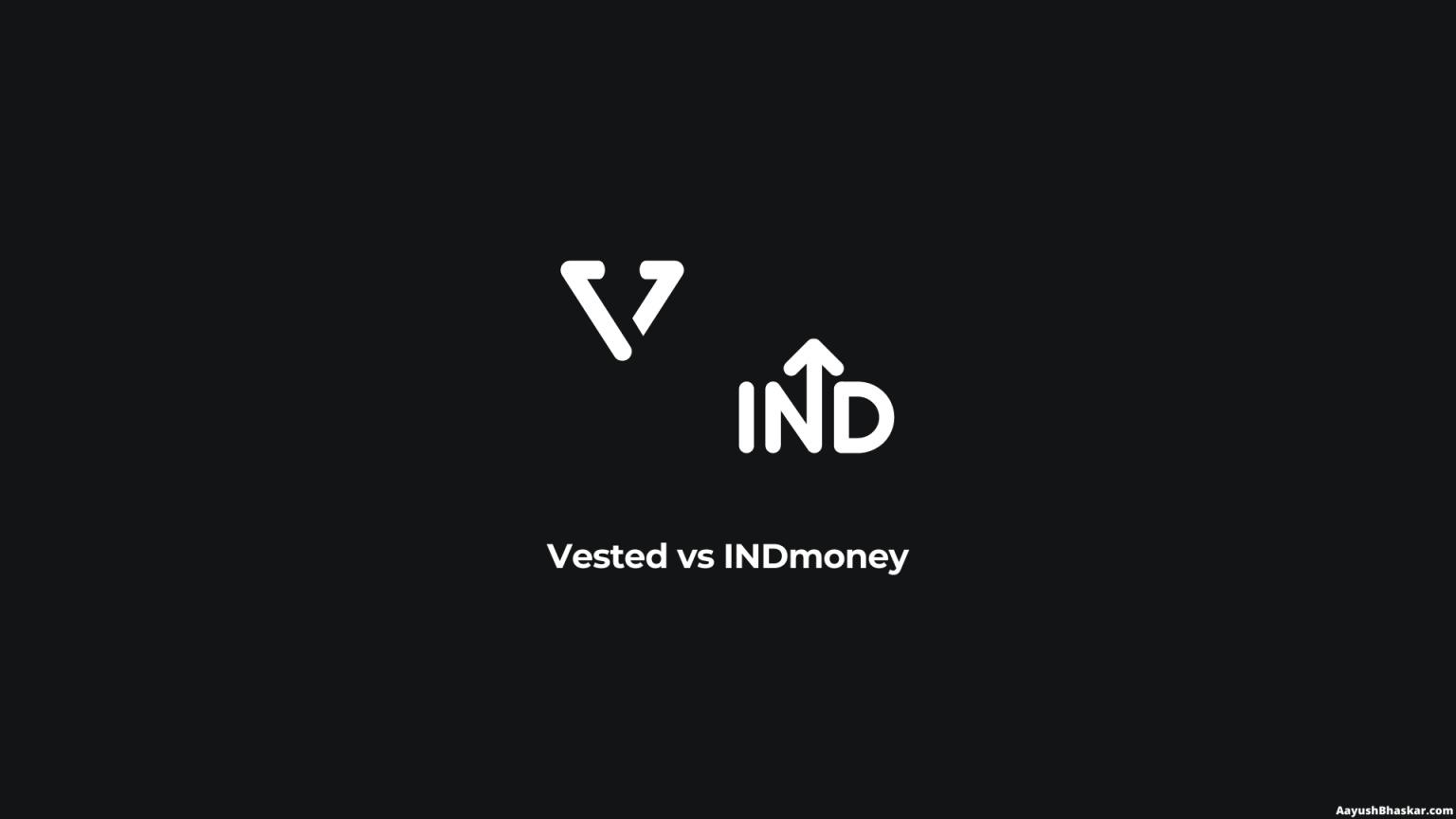
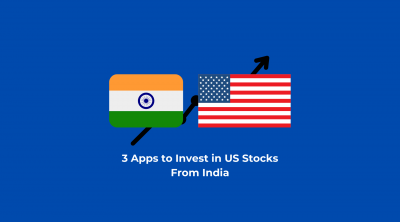
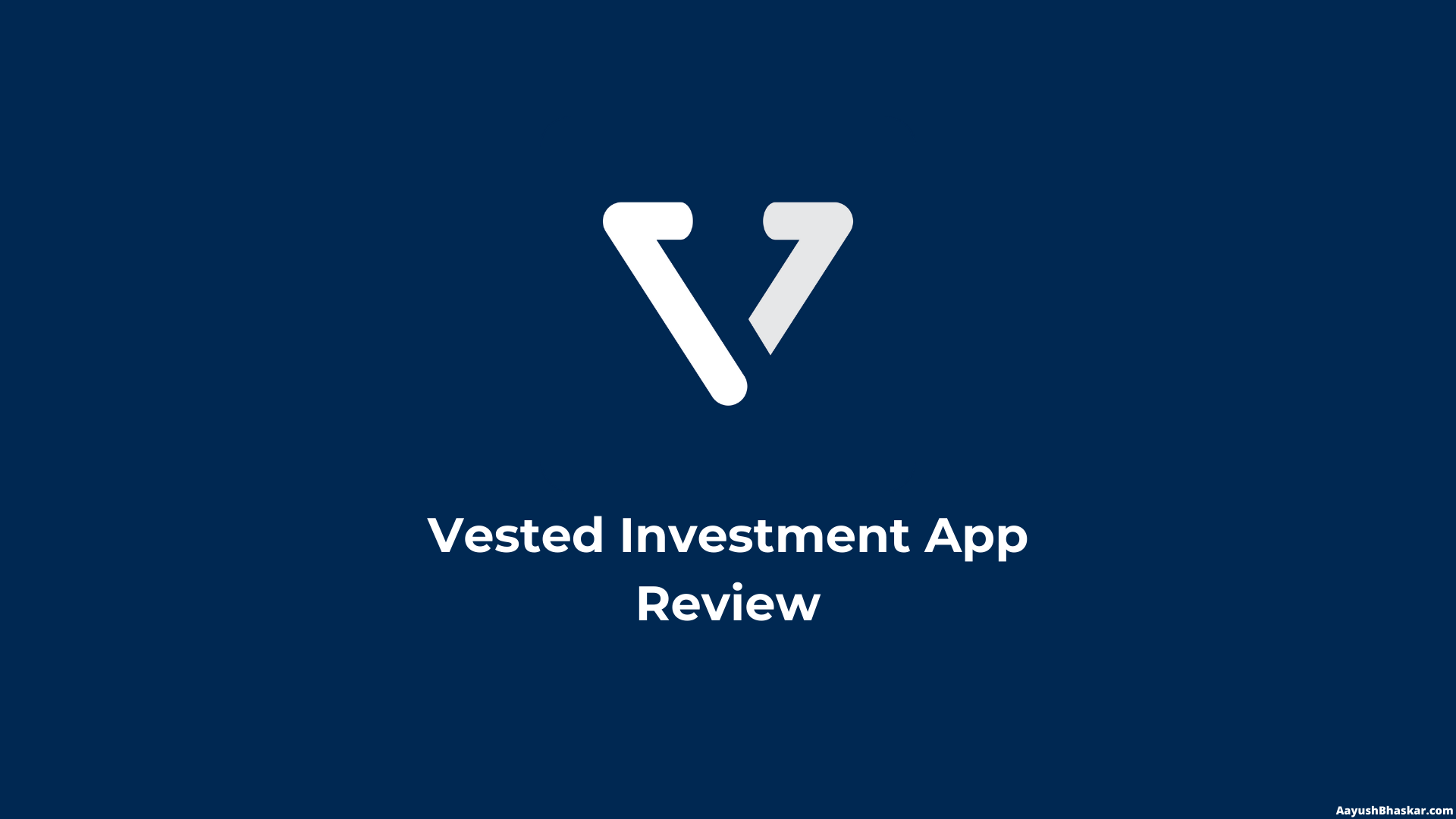
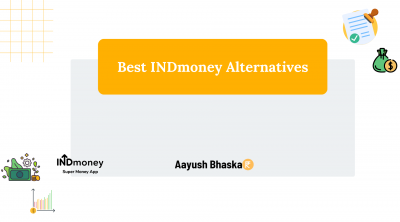
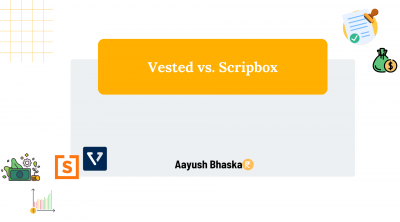
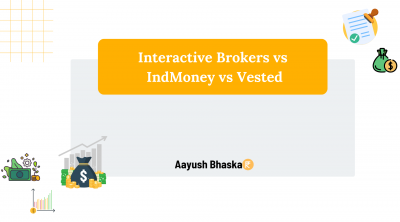
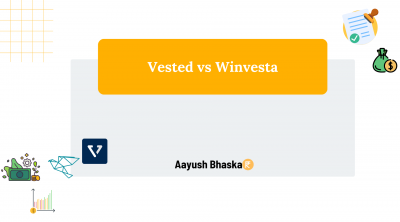
Informatic article @Rima, but I have a query – what is the best option to invest in US IPO.
Is Vested and indmoney both provide ipo investment opportunities?
Hi Puneet,
Currently, there’s no way to invest in US IPOs through fintech apps in India.
Thanks Aayush.
This seems to be a well written article.
I know which to choose now.
Hey Aayush, have you compared the exchange rates of both the platforms? I use ind money and their conversion rates are on the higher side, how is it with vested?
Hi, a very informative article. However it would be great if few minute points also could be made part of this and discussed further, Those are,
1. Tax documentation made available for filing taxes in India.
2. Types of orders and restrictions. For example limit buy order in Vested where in you can put price below market rate can not be placed for fractional shares. And Stop sell orders can not be placed for price above market rate. Both cases can be valid if the investor intends to wait for the order to get executed at a favourable price.